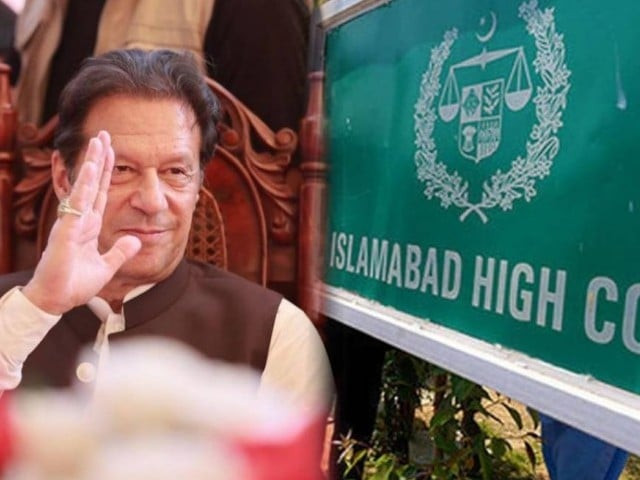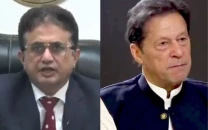State attorneys in cipher case under IHC scrutiny
Bench seeks CVs of two lawyers appointed by trial court to represent Imran Khan, Qureshi

The Islamabad High Court (IHC) has sought credentials of the state counsels appointed for former prime minister Imran Khan and former foreign minister Shah Mahmood Qureshi in the diplomatic cipher case, as per the order of a trial court.
The court has expressed surprise as to why the trial court did not provide private counsels to the PTI leaders, who were sentenced to 10 years in prison on January 30, just over one week before the February 8 general elections.
On Wednesday, a division bench comprising IHC Chief Justice Aamer Farooq and Justice Miangul Hassan Aurangzeb resumed hearing the appeals filed by Imran and Qureshi against the trial court’s order.
Continuing his arguments, PTI's lawyer Salman Safdar stated that just 11 days after the trial began, the Special Court judge, Abual Hasnat Muhammad Zulqarnain, accused the PTI lawyers of employing delaying tactics and directed the prosecution to appoint state counsels to represent the accused.
He mentioned that the trial commenced on January 15, and by January 26, the trial court requested state counsels for the accused. He added that testimonies of all four witnesses had been cross-examined by January 24, and within six days, the cross-examination of all witnesses had been completed.
Safdar pointed out that the PTI leaders' lawyers did not appear in court only once, and on the same day, the trial court judge passed three orders after brief intervals.
“The judge wrote an email stating that government lawyers should be appointed for the accused. When we returned the next day, the most important witness, Azam Khan, was coming out of the courtroom.
“He told us that he had been cross-examined. Khan's testimony and cross-examination were conducted on the same day,” he said.
Safdar argued that the trial court relied on judicial precedents that did not apply to the cipher case. “In those cases, government lawyers were appointed after a delay of two to three years. This is a case of professional misconduct [on the part of the judge],” he said.
The court questioned the state’s law officer regarding whether a court has the authority to appoint government lawyers on its own or if it asks the advocate general to appoint them.
When the court asked the advocate general why he provided names of state counsels to the trial court instead of some private lawyers, he replied that the trial court judge in his order had clearly directed him to appoint state counsels for the PTI leaders.
Justice Miangul Hassan Aurangzeb asked why the trial court judge wrote only to the advocate general and not to the relevant bar council’s president. He also inquired about the standing of the state counsels who cross-examined the prosecution witness on behalf of the PTI leaders.
The court later asked the state’s law officer to submit the curriculum vitae (CVs) of the two lawyers assigned to Imran and Qureshi.
PTI leaders’ lawyer Salman Safdar claimed that one of the state counsels, Abdul Rehman, was part of the prosecution team prior to his appointment as the accused’s counsel. He said Abdul Rehman had been attending the case proceedings from day one.
The advocate general rejected the claim. However, the court asked the superintendent of Adiala Jail—where the cipher case trial took place—to submit records regarding the entry of visitors in the jail between October 23 to January 30. The court adjourned the hearing until March 25.



















COMMENTS
Comments are moderated and generally will be posted if they are on-topic and not abusive.
For more information, please see our Comments FAQ